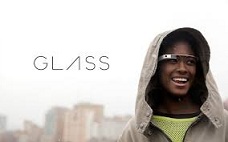 Many Potential Uses for Google Glass in Healthcare
Many Potential Uses for Google Glass in Healthcare
Google Glass is anticipated to be the next big thing in — well, pretty much everything. It is so sublimely sci-fi come-to-life, and the implications of this type of technology are huge. This is particularly true of its future potential role in the medical industry.
Defining Google Glass
Before we can truly understand the potential of Google Glass in the medical field, we must first understand what it is. In a nutshell, Google Glass is a highly sophisticated pair of glasses that create a personal augmented reality for the wearer. Notice we said augmented, not virtual; individuals using Google Glass are still completely connected to their real-life surroundings and can perform all tasks independent of the technology.
Google Glass performs a variety of functions from providing turn-by-turn navigation to recording hands-free video. The HD screen in front of the right eye creates a viewing experience that is like watching a 25-inch television. Sound is bone-conducted, which means only the wearer can hear what’s going on. Finally, Google Glass responds to voice commands for a truly hands-free experience.
Google Glass and Medicine
If the only possible use for Google Glass in medicine was in the surgical suite that would be huge enough. Just think: access to patient records, images, surgical plans and procedural guides all right before the surgeon’s eyes, with no risk of contaminating anything because it’s all hands-free.
What’s exciting is that the surgical suite is only one of the many potential uses of Google Glass in the medical industry. Doctors, nurses, administrators, EMT personnel, lab technicians and many others can all benefit from the technology. For example:
- Emergency medical technicians can document every aspect of emergency care given. From there, that information can be streamed to hospital staff while the patient is en route, giving nurses and doctors a clear, realistic understanding of the situation and its severity. This will allow seamless transfer of the patient and care, which has the potential to save lives.
- Doctors would have access to a wealth of medical references without having to leave a patient’s exam room. This could improve making diagnoses, prescribing medications that are not contraindicated and providing the patient with helpful information that a physician may not remember offhand.
- Google Glass could improve patient education, compliance and satisfaction through the interactive nature of its technology. This is particularly true if patients have their own Google Glass, but can still be helpful in the office. If the patient has the technology at home, it can create a whole new level of care and involvement between patient and doctor.
These are just a few examples of the virtually endless benefits of utilizing Google Glass in the medical industry.
Just because the potential is there, however, doesn’t mean the infrastructure is in place. For general medical information such as reference or decision algorithms, appointment reminders and basic administrative tasks, Google Glass is wonderful. In order to be able to utilize the technology to its full potential, though, serious advancements will have to be made with regard to security and privacy.
About the Author: Michelle Rebecca is a blogger and freelancer, who’s written for various different medical companies and healthcare professionals, including a breast implants surgeon. She loves constantly learning about new subjects and industries while she’s writing. Follow her on Google+.
